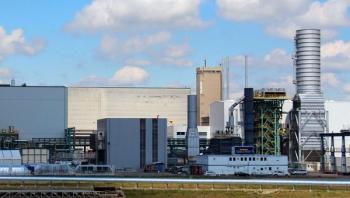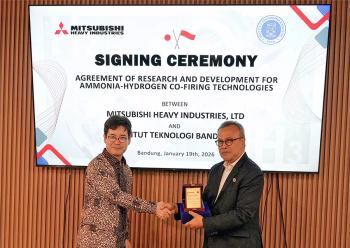
Let's crank up the innovation
The myth about a brilliant scientist developing a new invention to change our world is exactly that…a myth. It is well accepted that scientists, engineers and practitioners of all walks of life build upon other’s thoughts, inventions and ideas.
The internet has spawned new levels of innovation by making it much easier to disseminate ideas. Even the rate of innovation in the slow-moving world of power plant lubrication is impacted by the sharing of knowledge and ideas. Blogging is a relatively new form of internet communication that has quickly become woven into our daily stream of news and information. Essentially, anyone with access to the internet can have their own soapbox to stand in front of the 2 billion connected people of the world. The “crowd” determines the blog postings of greatest interest in a meritocratic fashion. (Although one could easily argue that the viral spread of youtube videos featuring the release of bodily gasses offers little merit to our society.)
It’s not my intention to communicate all of the internet-connected people of the world, but I hope that the thoughts shared on this blog become a strand in the weaving of information that influences the direction of the industry, the rate of innovation and the awareness of the importance of lubrication in the reliable operations of turbomachinery equipment.
If we consider the fluids that were used to lubricate rotating equipment in the 1900’s and the technologies used to maintain them, we can see that there were few innovations for the first many decades in our industry. (How many of you are still using centrifuge technology to remove water from your turbine oil?) Over the last 10 years, we’ve seen much advancement in power plant lubrication: New turbine oil formulations, innovative contamination control technologies, more precise analytical methods and even the introduction of sensors to name a few.
To be fair, the need for lubricant innovation throughout the 1900’s was not high as there were few problems. A lot has changed in the last decade and several new lubrication problems have emerged, risking the availability of power plants. This is due to a myriad of factors, including:
·
A change in power plant duty cycle - most gas turbines are operated in a cycling/peaking fashion rather than base loaded, which impacts the performance of a lubricant.
·
Leaner operational and maintenance staff, especially since the rapid growth of Independent Power Producers (IPP’s) starting in the early ‘90’s. Far fewer people are tasked with greater responsibilities than in the past.
·
New types of turbine oil chemistries that require different condition monitoring techniques have been introduced and are now widely used.
Traditionally, lubrication has been considered a necessary evil in power plants. The mechanically-oriented minds responsible for operating and maintaining the power plant attempt to guess what is occurring inside the invisible confines of a turbine oil reservoir, which often involves chemistry – a subject matter not entirely comfortable for many plant personnel.
With the emergence of lubrication problems, ranging from varnish deposits impairing servo-valve performance to cooling tower gearbox failures due to poor lubrication, much more attention is now placed on lubrication. A well managed lubrication program can be part of a plant’s strategy to increase their reliability, availability and ultimately, profit margins of their operation.
Lubrication is in the process of being transformed from a low priority plant task to a strategic initiative that provides competitive advantages to power plants that understand this importance. In this blog, I’ll have the opportunity to explore the changes in industry in more detail. However, in order for this blog to offer higher value and to spur innovative thoughts, it depends upon input and thoughts from you. This is one way we can use the internet as a tool to crank up the rate of turbomachinery lubrication innovation.
Newsletter
Power your knowledge with the latest in turbine technology, engineering advances, and energy solutions—subscribe to Turbomachinery International today.




